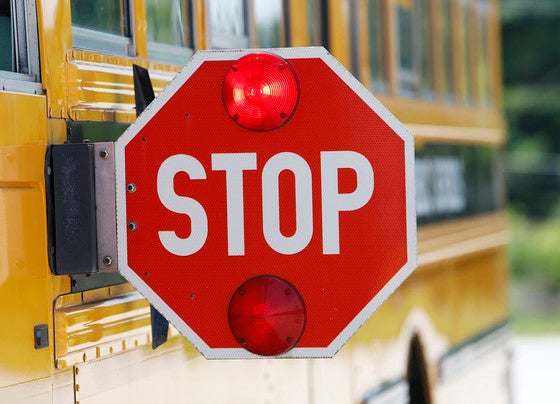Republican lawmakers want a special session after Jefferson County school bus debacle
Published 2:30 pm Monday, August 14, 2023

- File photo
|
Getting your Trinity Audio player ready...
|
By Mckenna Horsley
Kentucky Lantern
After a disastrous first week of school that saw students in their district not getting home until 10 p.m. on Wednesday and school subsequently being canceled for two days, Jefferson County Republican lawmakers want a special session to enact changes to the district — including a “school choice” amendment and evaluating splitting the school system up.
The 12 lawmakers, who include House Majority Whip Jason Nemes and Senate Majority Caucus Chair Julie Raque Adams, signed an open letter released Thursday saying the school district failed to “keep our kids safe” and structural changes are needed. Both legislators represent Louisville.
“Our school district has failed for far too long,” the letter reads. “For the good of our community and, most importantly, for the future of our children, we must act boldly. And we must act now.”
The efforts they would spearhead if Democratic Gov. Andy Beshear calls the special session include:
- A “neighborhood schools” bill, which the lawmakers said would give students “the right to attend their neighborhood schools” and reduce the need for students to be transported across the county. Rep. Kevin Bratcher, R-Louisville, filed such a bill in 2017, but the bill faced pushback from residents about how it would affect magnet programs in the system.
- Creating a commission to evaluate splitting up JCPS, which is currently Kentucky’s largest school system and the 30th largest in the country. The lawmakers said “the district is too big to properly manage” because it has nearly 100,000 students and 165 schools.
- Extensive changes to the school board. GOP lawmakers claim the board is not up to the task of managing the $2 billion school district.
- Putting a “school choice” amendment on the ballot in 2024 to allow students to enroll in schools other than their assigned public school district and allow public school dollars to follow them.
Scottie Ellis, deputy communications director for Beshear’s office, said in a Friday statement that no legislator has directly contacted the office about a special session.
“A special session is an extraordinary step that costs significant tax dollars and should only be taken after full consensus is reached and legislation has been drafted and then agreed upon,” Ellis said.
Students returned to JCPS on Wednesday for the first day of school. According to media reports, some bus riders were not dropped off until nearly 10 p.m.
JCPS canceled classes on Thursday and Friday to address its bus routes. Ahead of the school year, the school district changed start times and cut bus routes because of a bus driver shortage. The district hired Boston-based company AlphaRoute to optimize bus routes and the district’s schedule.
In a Thursday video, Superintendent Marty Pollio apologized to students, their families, bus drivers and school employees and said the issue fell to him and his team. He added that over the next few days bus routes and stops will be reviewed, bus drivers will be paid to practice their routes and communication will increase, including the district upping the number of people answering calls for a bus hotline.
“I can say change is hard and it is,” Pollio said. “The massive change we are undertaking is extremely difficult, but in the end that can’t be the excuse. We have to be better at what we are doing.”
On Friday, Pollio told reporters that it could be “the middle of next week” before students return to school. As for “deconsolidation” of JCPS, Polio said that would bring several “challenges,” especially when it comes to dividing schools between areas with high and low property assessments. Multiple transportation systems and alternative school programs for each new district would also be needed.
“I don’t want to say it’s not possible, but I think it would be the most disruptive thing to this community,” he said. “And I will say once again, I think, especially students in high poverty areas would suffer more than anywhere else as a result of that.”



